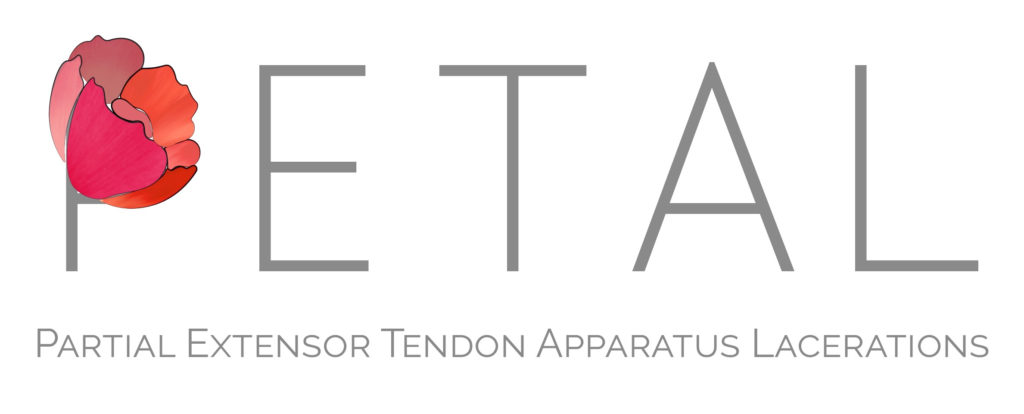
Research Question:
What is the best treatment for patients with partial extensor tendon lacerations of the hand and forearm, and is it feasible to conduct a randomised controlled trial comparing suture repair with non-repair?
Background:
Injuries to the extensor tendon apparatus of the hand and forearm are common and typically occur in the working age population with significant socioeconomic impact for the individual and wider society.
Complete lacerations of the extensor tendons are generally managed with surgical repair and splintage; however, the optimum management of partial tendon lacerations is an area of clinical uncertainty. Typically, the decision to repair is based on ‘The 50% Rule’ which was derived from a study of chicken flexor tendons in 1984 and is not supported by robust clinical evidence. The lack of evidence to support the management of this common condition poses a challenge for treating clinicians and consequently decision-making can be difficult for patients. Further research is therefore warranted to identify the optimum management of partial extensor tendon lacerations in the hand and forearm.
PETAL is a mixed-method feasibility study consisting of a systematic review, clinician survey, and retrospective cohort study to inform the design of a potential randomised control trial.
The PETAL survey:
The PETAL Survey is a clinician survey designed to identify how surgeons manage partial extensor tendon lacerations of the hand and forearm, and assess willingness to randomise in a potential RCT. The survey was distributed via the RSTN utilising a trainee-led collaborative approach (see map below) with over 200 responses. The survey is now closed and in preparation for publication.
Get Involved:
The PETAL survey is now closed.

Alistair Reed
Plastic Surgery Registrar, Buckinghamshire Healthcare NHS Trust
Katie Dickson
Plastic Surgery Registrar, University Hospitals Birmingham
Justin Wormald
Specialty Registrar in Plastic Surgery, Oxford
NIHR Academic Clinical Fellow, Oxford
Ryckie Wade
Plastic Surgery ACF, Leeds Teaching Hospitals
Angelo Mantelakis
Core Surgery Trainee, Guys and St Thomas’s NHS Trust
David Izadi
Consultant Plastic and Hand Surgeon, University Hospitals Coventry and Warwickshire
Dominic Furniss
Professor of Plastic & Reconstructive Surgery, University of Oxford
Honorary Consultant, Department of Plastic and Reconstructive Surgery, Oxford University Hospitals

- Systematic review
- Clinician Survey
- Retrospective cohort study
- Analysis of HES data
- Feasibility RCT

Funder:
Funding application to be submitted subject to outcome of feasibility work.
The PETAL survey was carried out via the RSTN collaborative model with the opportunity to join the project as a local collaborator. The survey is now closed.
